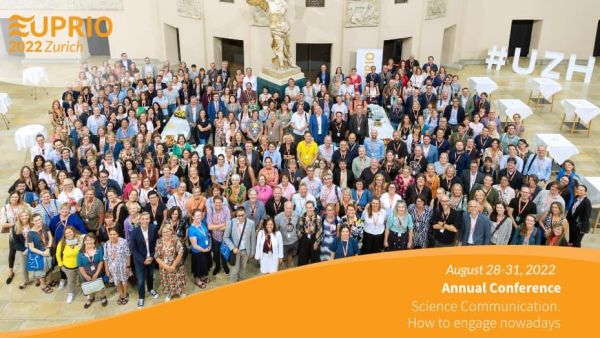Displaying items by tag: science communication
EMBL Barcelona: cutting-edge science with a beach view
The European Molecular Biology Laboratory (EMBL) currently has 28 member countries and more than 110 independent research groups covering a wide spectrum of molecular biology in six cities in Europe. How is science communicated at EMBL?
Oceněná Hubálková: Odměnu investuji do komunikace vědy
„Vědci a vědkyně nejsou na komunikaci vědy sami! Ať se nebojí ptát a ozvat se nám, rádi jim pomůžeme či poradíme,“ říká Pavla Hubálková, naše vědecká redaktorka, jež byla za svůj výzkum a disertaci na 3. LF UK oceněna Cenou Dimitrise N. Chorafase.
EUPRIO's raison d'etre: Sci communication
Zurich is more than the Swiss city of chocolate and banking or one of the richest cities in the world: recently, it was the destination where communicators from all over Europe converged. The conference central theme of the annual conference was “Science communication: how to engage nowadays”.
Didaktikon: Science for elementary & secondary schools
September saw the opening of the Didaktikon Educational and Creative Centre at Kampus Hybernská, successfully fusing cooperation between Charles University and the City of Prague. Ten interdisciplinary exhibits and a number of events await visitors.
Talking about science for three minutes can be "life changing" and open up new job opportunities, provide contacts and improve presentations. That's according to former winners of the FameLab competition, which is open to humanities majors for the first time this year. Applications are open until 17 July.
Final FameLab training took place over the weekend, where particiupants got tips on how to improve their performances or how to better communicate science. The final evening will take place on 30 September at the new Didaktikon Education Centre at the Kampus Hybernská multifunctional space.




















